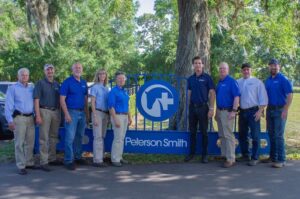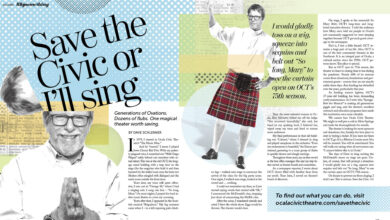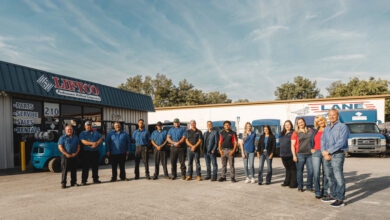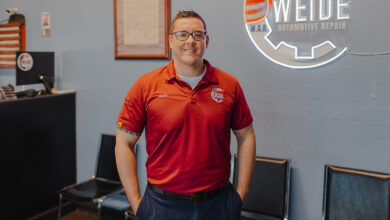In August 1981, two Ocala equine practitioners, Dr. John Peterson and Dr. Johnny Mac Smith, established Peterson & Smith Equine Hospital. Additional veterinarians joined the team as the years passed and the practice continued to grow. Today, Peterson Smith Equine Hospital + Complete Care, in Ocala, formerly known as Peterson & Smith Equine Hospital, comprises 26 veterinarians, nine of whom are partners.
Unfortunately, Dr. Smith developed a severe allergy to horses in 1993 and had to leave the practice, but Dr. Peterson continued to see patients as one of the practice’s ambulatory veterinarians until the end of 2017.
Very sadly, an icon in the world of horse medicine, Dr. Peterson passed away this past December 25. Our most sincere condolences are with his family and friends. Dr. Peterson’s significant and lasting contributions to the equine veterinary industry are many. His role in leadership and mentorship has helped to shape the careers and lives of many veterinarians. Dr. Peterson and other vets like him, have helped to nurture and teach upcoming new veterinarians.
 Peterson Smith Equine Hospital + Complete Care is a great example of the desire to excel in maintaining a tradition of leadership and excellence in equine medicine and has done so for more than 40 years. For the future, the entire staff is excited about the opportunities that are in store for the equine industry and grateful for the solid foundation upon which the practice was built. In 1999, the vision to create a reproduction center became a reality with the construction of the Equine Reproduction Center in Summerfield, now known as the Advanced Fertility Center.
Peterson Smith Equine Hospital + Complete Care is a great example of the desire to excel in maintaining a tradition of leadership and excellence in equine medicine and has done so for more than 40 years. For the future, the entire staff is excited about the opportunities that are in store for the equine industry and grateful for the solid foundation upon which the practice was built. In 1999, the vision to create a reproduction center became a reality with the construction of the Equine Reproduction Center in Summerfield, now known as the Advanced Fertility Center.
Retiring from the practice this year, Dr. Phil M. Matthews, Dr. J. Kevin Hahn, Dr. Donnie E. Slone and Dr. Tim M. Lynch, will be greatly missed. These four exceptional veterinarians have contributed incredible amounts of dedication, time and energy to the success of the practice. Three new veterinarians have already begun their tenure with Peterson Smith Equine Hospital + Complete Care and a new era is on the horizon. The hospital, fertility center and ambulatory doctors will continue to provide excellence in equine medicine options and care. However, like many other large animal practices, the Peterson Smith staff has concerns about future veterinarian shortages in their practice.
As Ocala and the Marion County area continues to grow exponentially, this large animal veterinarian shortage concern was brought to my attention by Peterson Smith’s Chief Operating Officer, Jose Madera. This is a topic that has also been widely reported by the American Association of Equine Practitioners (AAEP) and is not only a concern here at home, but across the USA. This is why, I believe, it is more important than ever for us to be kind and considerate to our veterinarians. Most large animal veterinarians work long hours, often in rapidly varying temperatures and drive many miles throughout the day or evening, to assist clients dealing with horse health and emergencies. There is more traffic than ever and more horses needing attention. Clients also have the option to trailer into the clinic themselves if it will expedite care faster, especially for those who live farther away. Developing a relationship with a neighbor who has a trailer if necessary, or setting up an arrangement with a reliable horse transport company like Brook Ledge, for example, is also a great idea. Do not wait until an emergency occurs to begin trailer loading training with your horse though! A phone call to the clinic is recommended to find out what your best and fastest option will be for that day, depending on how many other emergencies may be occurring at the same time. The end goal is always to get your horse treated as quickly and efficiently as possible. Another great tip to help your horse faster, is to be well-prepared when your veterinarian arrives, provide details of what has transpired with any records or insurance information plus any medications already given. Any diet or environmental changes are also very important to report to your vet. This will all make the visit much more efficient and provide the best opportunity to help the horse.
Another way you can help your horse and expedite an emergency call is to know how to check your horse’s vitals. Having a thermometer on hand and some basic first aid items nearby plus an inexpensive stethoscope is helpful. Knowing how to listen for gut sounds and having some basic knowledge on what sounds are normal for your horse will also help answer questions the vet may have on the phone call with you, before reaching you.
Becoming a large animal vet is hard work and there is no doubt that it does have its challenges, but Peterson and Smith’s Dr. Adam Cayot said it best in one of his most recent interviews for the Horse Talk Show. He said that helping horses to recover and become their best is so rewarding. He said that for him, as a veterinarian, seeing these incredible athletes go on to achieve great things for their owners, after recovering from an injury or illness, is the most rewarding part of the job for him and he wouldn’t change what he chose for his career path. We need many more large animal vets here in the ‘horse capital’ and what better place to be, if helping horses is your passion.
I believe, as horse owners who truly value our veterinarians, we can all make an effort moving forward in 2023 to encourage our hard working veterinarian force. Whoever you choose to be your veterinarian, be kind to them and try to be considerate of their time. At the end of the day, their goal is the same as ours, to help as many horses as possible in the most efficient amount of time, dealing with the most severe emergencies first.






